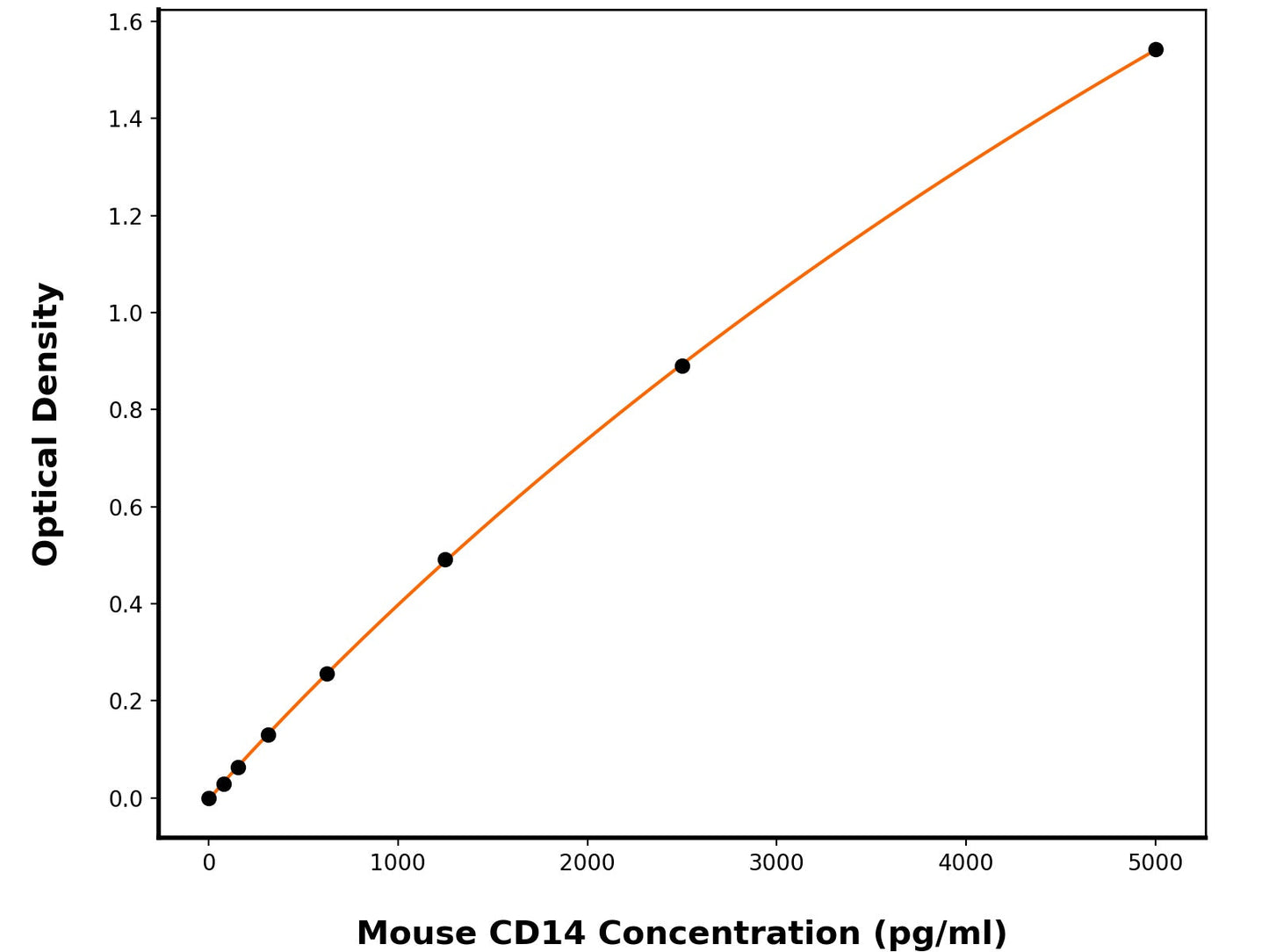1
/
of
1
Mouse Monocyte Differentiation Antigen CD14 (CD14) ELISA Kit
Mouse Monocyte Differentiation Antigen CD14 (CD14) ELISA Kit
This ELISA kit is designed to detect Mouse Monocyte Differentiation Antigen CD14 (Mouse CD14). The assay plate has been pre-coated with mouse anti-Mouse CD14 monoclonal antibody. When the sample containing CD14 is added to the plate, it binds to the antibodies coated on the wells. Then, a horseradish peroxidase conjugated mouse anti-Mouse CD14 Antibody is added to the wells and binds to CD14 in the sample. After washing the wells, substrate solutions are added, and the color intensity is directly proportional to the amount of Mouse CD14 present. The reaction is stopped by adding an acidic stop solution, and the absorbance is measured at 450 nm.
Catalog No:
BPE282
Regular price
$624.00 USD
Regular price
$480.00 USD
Sale price
$624.00 USD
Unit price
/
per
2 weeks
Couldn't load pickup availability
Product Details
Species Reactivity
Mouse
Sensitivity
26.94 pg/mL
Detection Range
78.13-5000 pg/mL
Sample Type
Serum, plasma, cell culture supernates
Incubation(s)
3.5 hour(s)
Research Areas
Immunology, Stem cells, Epigenetics and Nuclear Signaling
Background
The cluster of differentiation (CD) system is commonly used as cell markers in immunophenotyping. Different kinds of cells in the immune system can be identified through the surface CD molecules associating with the immune function of the cell. There are more than 320 CD unique clusters and subclusters have been identified. Some of the CD molecules serve as receptors or ligands important to the cell through initiating a signal cascade which then alter the behavior of the cell. Some CD proteins do not take part in cell signal process but have other functions such as cell adhesion. Cluster of differentiation 14 (CD14) is a member of the CD system. It takes its name from its inclusion in the CD molecule surface marker proteins. CD14 exists in two forms: a form anchored into the membrane or a soluble form. CD14 was found expressed in macrophages, neutrophil granulocyte and dendritic cells. The major function is to serve as a co-receptor (along with TLR4 and MD-2) for the bacterial lipopolysaccharide (LPS) and other pathogen-associated molecular patterns.
Shipping Condition
Shipped on cold gel packs.
Storage Condition and Shelf Life
This product can be stored at 2-8C.
Analyte
Monocyte differentiation antigen CD14
Regulatory Status
For Research Use Only

